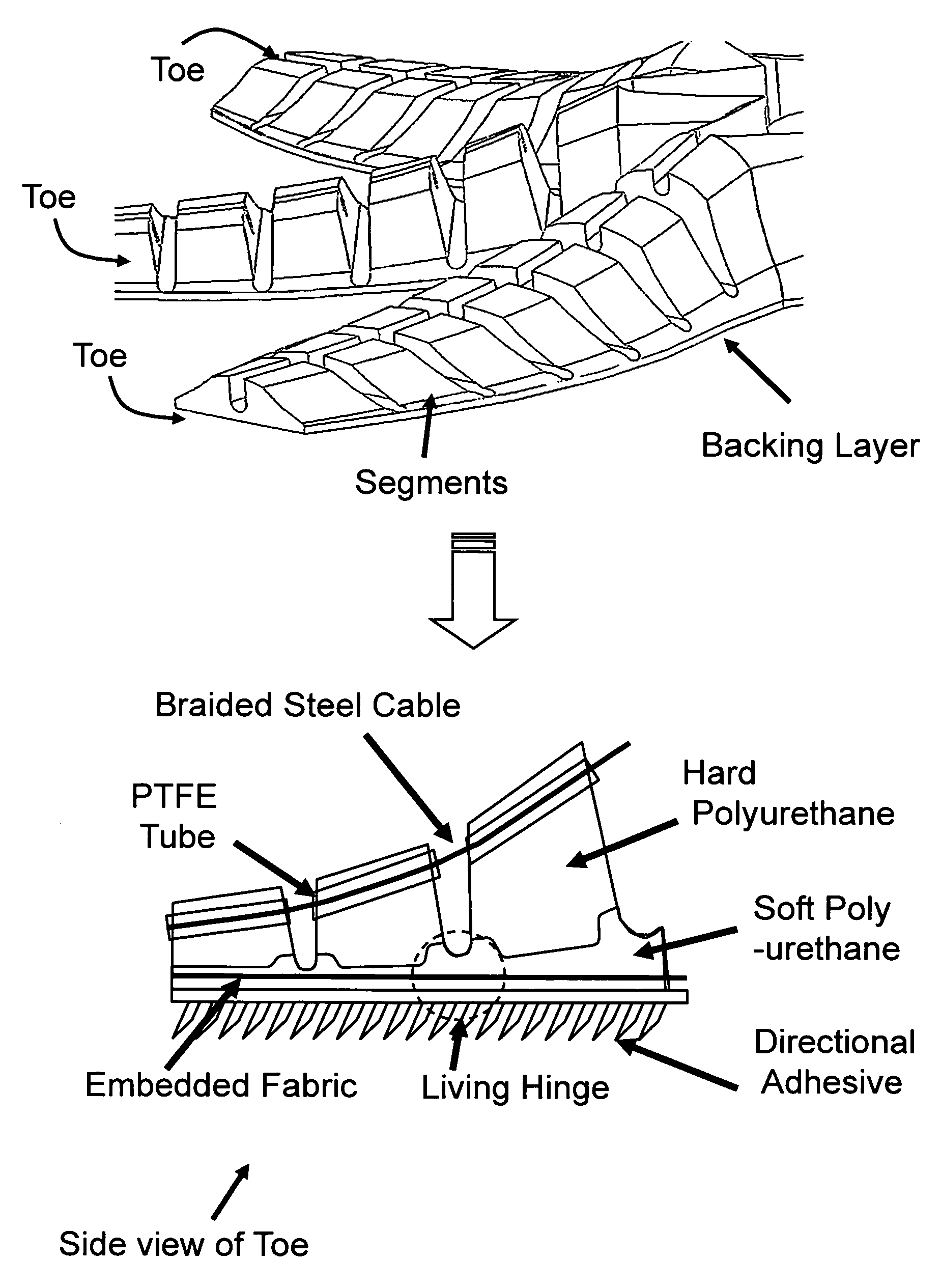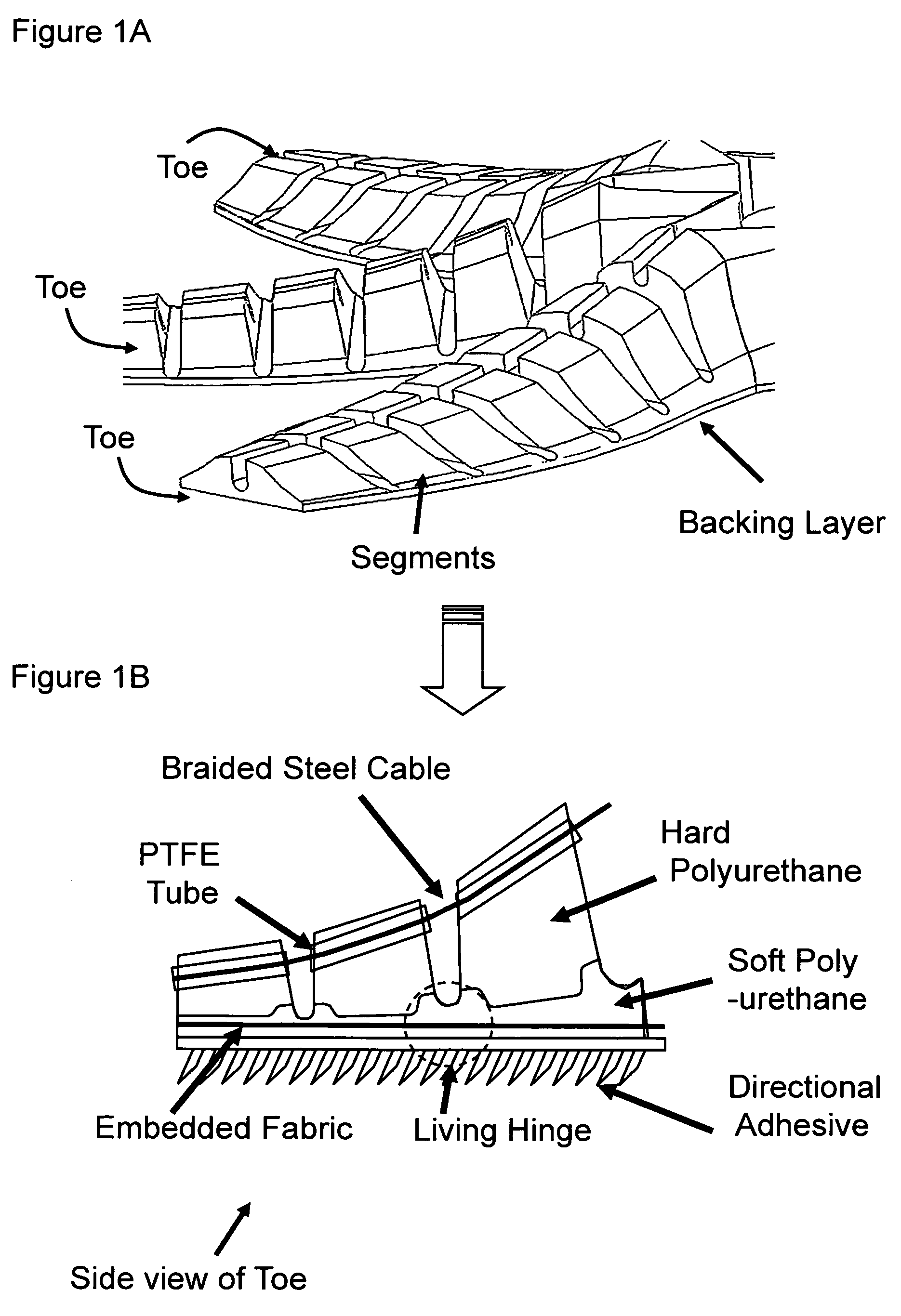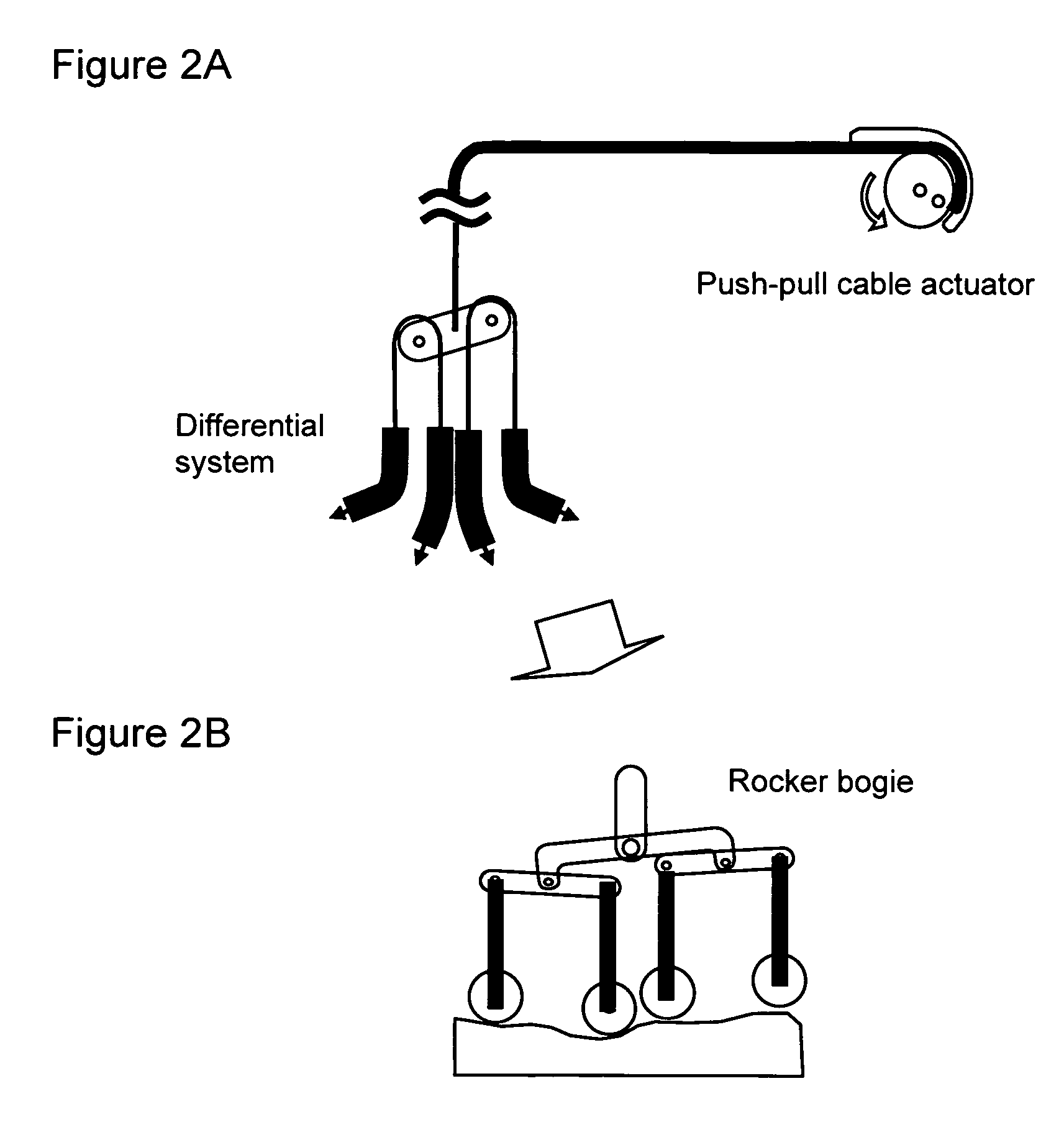Climbing with dry adhesives
a technology of adhesives and climbing robots, applied in the direction of vehicles, transportation and packaging, etc., can solve the problems of sticky adhesives, large power requirements, noise generation, etc., and achieve the effect of facilitating engagement and disengagement of adhesive materials, and sufficient friction and adhesion
- Summary
- Abstract
- Description
- Claims
- Application Information
AI Technical Summary
Benefits of technology
Problems solved by technology
Method used
Image
Examples
Embodiment Construction
A. Hierarchical Compliance
[0022]Climbing with van der Waals forces requires intimate contact because the forces scale as A / d3 where A is the Hammacher constant and d is the local separation between two surfaces. For particular material combinations the Hammacher constant can vary by as much as a factor of 4. However, reducing the separation distance has a much greater effect, making it essential to comply to surfaces at all length scales above tens of nanometers.
[0023]Natural materials, and many man-made materials such as concrete, have an approximately fractal surface topography. As a result, surface features such as protrusions or indentations can be found at many length scales, from centimeters to fractions of micrometers. Consequently, a general-purpose solution for dry adhesion must involve conformability over similar length scales.
[0024]In the gecko, the flex of the body and limbs allows for conformation at the centimeter scale. The feet are divided into several toes that can ...
PUM
 Login to View More
Login to View More Abstract
Description
Claims
Application Information
 Login to View More
Login to View More - R&D
- Intellectual Property
- Life Sciences
- Materials
- Tech Scout
- Unparalleled Data Quality
- Higher Quality Content
- 60% Fewer Hallucinations
Browse by: Latest US Patents, China's latest patents, Technical Efficacy Thesaurus, Application Domain, Technology Topic, Popular Technical Reports.
© 2025 PatSnap. All rights reserved.Legal|Privacy policy|Modern Slavery Act Transparency Statement|Sitemap|About US| Contact US: help@patsnap.com



